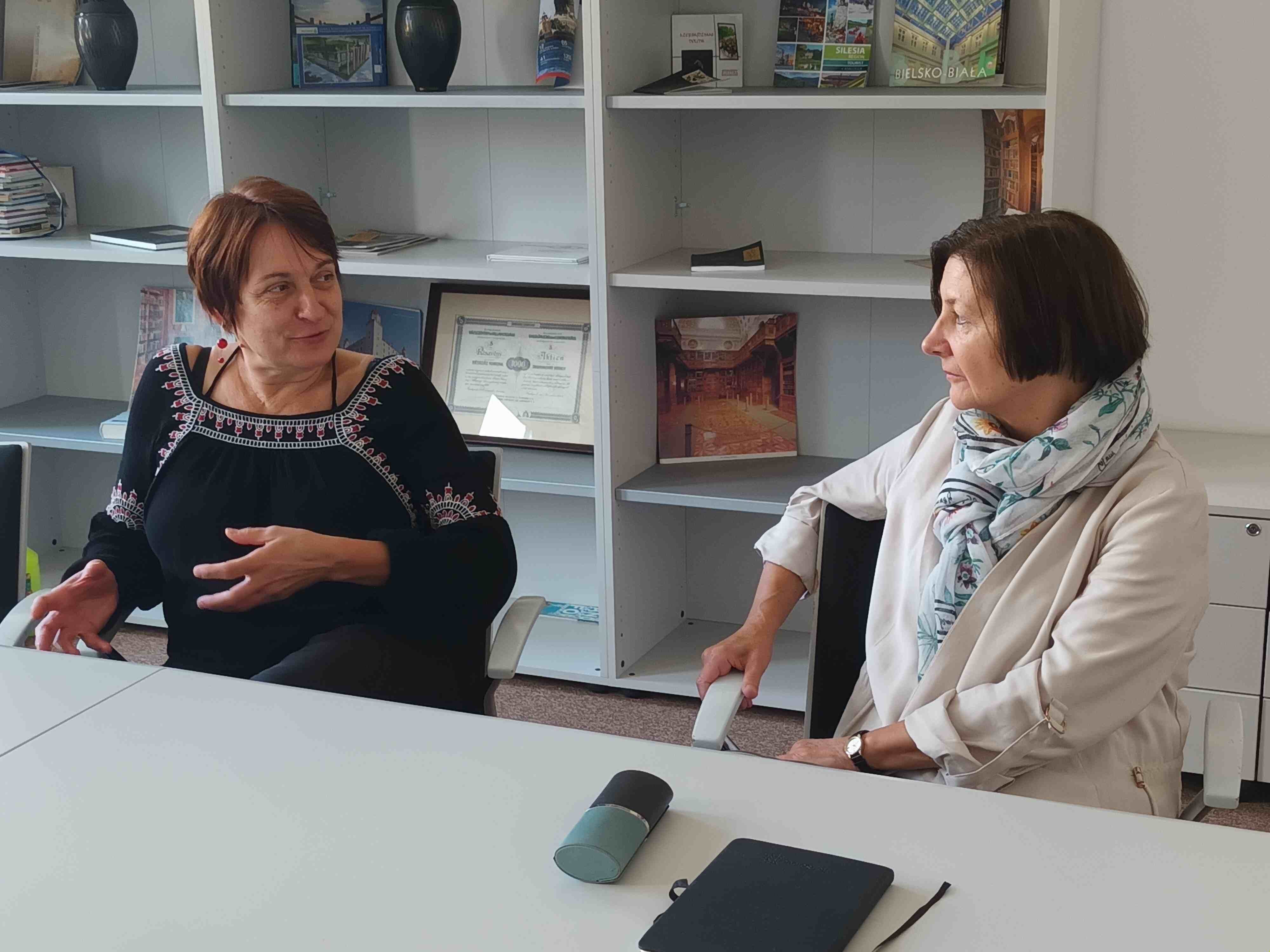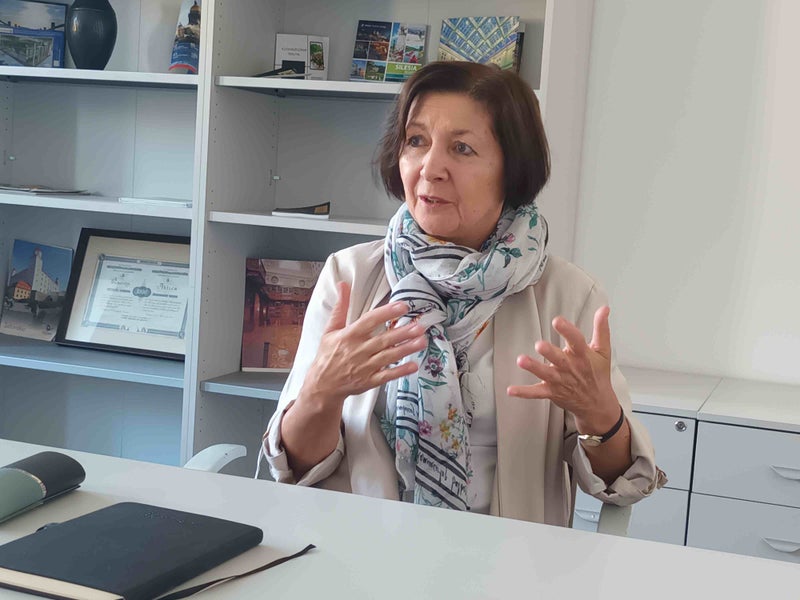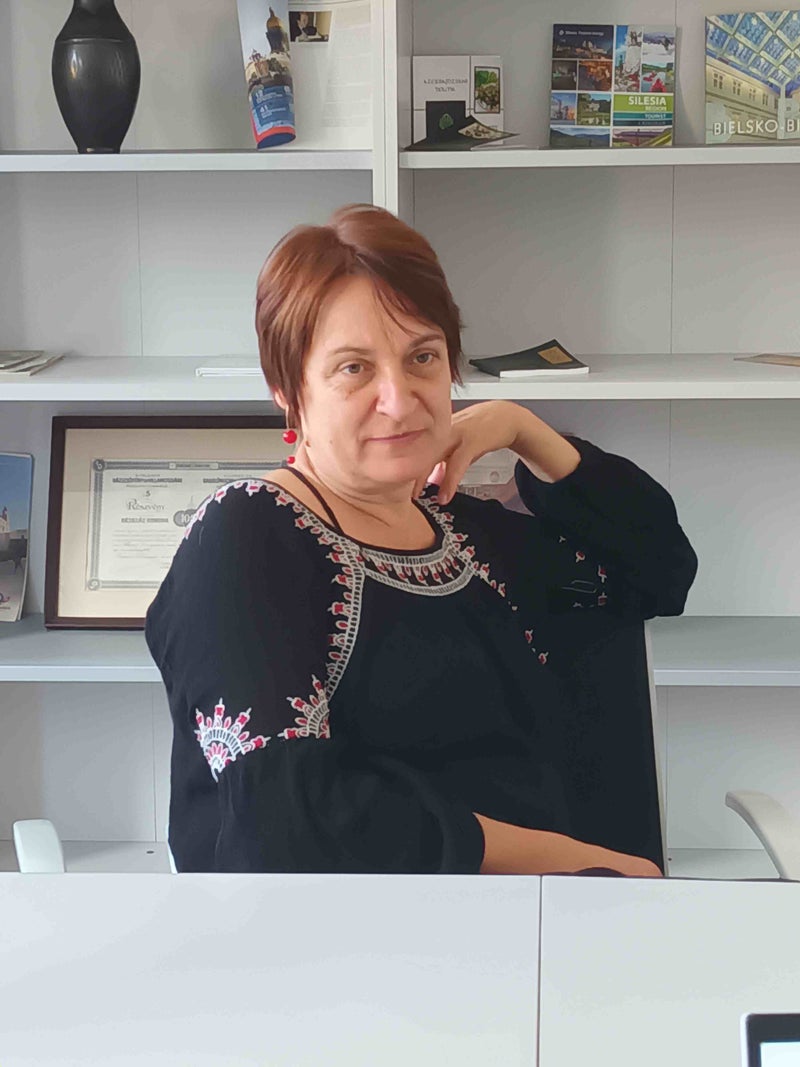“We sat opposite each other, but we never stood against each other” – New Director General at Corvinus Library

The Corvinus Library will begin the autumn semester with a new director after Zsuzsanna Nagy, who had been Director General since 2011, retired on 1 August. Her successor, Mónika Fischer, is not coming from far away – as they even sat opposite each other in the early days, forming a true mentor-mentee pair.
As they would later tell us in our interviews with the pair, Zsuzsanna had the slower, more cautious nature, while Mónika was the more adventurous, ambitious and idea-filled student. What was it like for Zsuzsanna to spend 39 years in the Library? How did Mónika become a colleague and what did they learn from each other? And of course, where to next, Corvinus Library?
These are some of the questions we asked in our article below. The interview is edited for length and clarity.
I. From Desk Officer to Director-General
Zsuzsanna Nagy started working in 1984 as a desk officer at Corvinus (then Marx Károly University of Economics), with a degree in economics. “I started in the health sector and came here after the birth of my son, thinking it would be a quiet job. And then later on it turned out to be far from that”.
As an office clerk, she processed mainly English-language journals, translated the titles and enabled content retrieval. “It was very inspiring work, because the journals contained serious, often theoretical articles, so you had to concentrate hard even to find out what the article was about,” he says.
The big change took place in 1989-90, and not only because the institution was transformed into the University of Economics of Budapest in connection with the regime change. Until then, people had been using catalogue cards for categorisation, so it was a challenge to make the transition to computer processing. “That switch was very exciting because our scope of work also expanded. Eventually we became a content supply department, which I later became the director of, with a middle management position,” says Zsuzsanna.
However, the road to the position of Director-General was still a long one. “I was lucky because I had good leaders. The first was Ernőné Huszár, who was the library director for 20 years, and then Gabriella Alföldi. She was also an innovative, resourceful, good leader, so I can’t complain in that respect.”
She was eventually asked by Gabriella Alföldi to be the service director, which at the time meant a deputy position. “My colleague, Erzsébet Szivi was in charge of the collection and I was responsible for the services. We had to reorganise the library’s service structure, trying to follow the leading American and Western European university library models”.
When Gabriella Alföldi retired, Zsuzsanna Nagy applied for the position of director, which she was granted. “I was delighted, but needless to say, it was quite a challenge to be the head of a library. Meanwhile, our headcount figure was falling rapidly, from around 80 in 1984 to 27 now,” she says. She said there were justified reductions, but also some that were ordered. “This of course did not feel good. Not only because of the human aspect, as it’s always difficult to part with colleagues, but also because we were forced on a number of occasions.”
II. Challenges and successes
At this point, I felt that parting with colleagues was indeed a challenge for Zsuzsanna, who was careful throughout the conversation to praise her colleagues whenever possible. I was very interested in these personal challenges and the successes that have resulted from them, so I asked about them in the second part of the interview.
K.M.: What professional and personal challenges have you faced in your work?
Zsuzsanna Nagy: “First of all, there were professional challenges, such as the digital switchover and the complete transformation of services. We had to get used to the fact that students and teachers were borrowing less and less, and wanted to access everything digitally. Then, of course, came the digital transformations in international science, in science communication, in publication patterns.
We are a research and education support organisation, so we had to help students and teachers find their way in this world. The difficulty even today is that many people do not understand what digital means. They think that if something happens on a computer, it’s digital. But it is not the case. Sometimes digitisation is done by transferring the workflow from paper to a machine, but that is not digitisation. We had to struggle with that too.
There were, of course, management challenges. Every time there was a change of leadership, we had to explain that the financial budget was not only for running the library, but also for raising funds. It’s not the library that costs a lot, but the databases, journals and books that are essential for high-quality teaching and research.
We also had to deal with the obsolescence of knowledge. The librarian profession has, unfortunately, become very devalued in the last 20-30 years, both in terms of prestige and money. Few talented young people were becoming librarians, making it increasingly difficult to recruit new colleagues. As good a librarian as you may be, the knowledge acquired at a college or university 25 years ago is now largely obsolete. Further training has not followed the trends very well either, so it was more down to the colleagues’ self-discipline to train themselves.”

K.M.: In addition to the challenges, there must also have been success stories.
Zsuzsanna Nagy “It is difficult to explain. I sincerely believe that we have achieved a lot of success in the library of Corvinus University. What we have not been good at is communicating our successes to the university community and the professional public. If we had been more clever about it, there might have been more news about what was happening in the Corvinus University library.
We were absolutely among the first in Hungary to switch to computer processing and information. Later, in the spirit of the open access movement, we were also among the first in the country to create a digital institutional repository, which is now publicly accessible as CorvinusResearch. Open access to the publications of university lecturers is available to anyone in the world, representing both the knowledge and intellectual wealth of the university and giving authors the opportunity to share their scientific results with a wider audience.
We have also been at the forefront in developing our learning support services. This is largely thanks to Mónika, because it was her job and she has been doing it for a long time. The aim of the programme was to develop students’ skills in processing and using information.
Today, the challenge is no longer to access the information you need, because it is everywhere, but to find the information that is relevant and necessary for you in the most efficient way. How do I search? How do I find and use the information? How do I cite, how do I avoid plagiarism? We have covered such topics in our programmes, both in group and individual consultations.”
III. Mentor and mentee
We had just reached the present when, as if on cue, Mónika Fischer arrived for the interview, having just signed the contract necessary for her appointment. From 1 August 2023, she has been working as the new Director General of the Corvinus Library.
Mónika initially started work at the Library because she was attracted by the opportunity that presented itself on Research Day, an event that no longer exists. These events, she said, were a close and motivating link between library staff and students. She later started working there as a reference librarian.
“I focused on exploring the content of the sources in different languages, such as French, English and Russian. After that, I also edited the Hungarian Economics Literature (MKI) for a while,” says Mónika about the beginning, and Zsuzsanna adds with a smile: “I would like to add a very important piece of information, because during that period we were sitting opposite each other”.
Later on, a network of departmental liaisons was established to support teaching and research, which led to the autonomous area of learning support. “In the end, that is where we achieved unique results in Hungary,” says Mónika. “Yes, we have talked about it, I said it was all thanks to you,” Zsuzsanna adds with a laugh.
Seeing the positive and intimate relationship between the two of them, I wondered if they had had good rapport from the beginning or if it had developed later in their work.
K.M.: It was mentioned earlier that for a while you were sitting opposite each other. How did you experience working together?
Mónika Fischer: “The point is that we sat opposite each other, but we never stood against each other.”
Zsuzsanna Nagy: “We always got on well with Móni. I found her very ambitious, very inventive, she had a lot of ideas, of course we didn’t always agree. I’m a cautiously progressive and deliberate person, and she’s more adventurous and likes to do things faster, but there have never been any conflicts between us. I’m very happy about the way things turned out, because I’ve been thinking for years about how Móni will take this library forward.”
Mónika Fischer: “I have thought of Zsuzsa as my mentor from the very beginning, she is a fantastic mentor both professionally and as a person. I’m a little bit scared, because what Zsuzsa said about progressing in a cautious way, keeping the balance, is something she was always very good at. In many areas, we have developed this cautious progress together. I now have to keep these aspects in mind, but I believe that the leaders and colleagues are supportive and we will grow stronger together.”
K.M.: Was there anything you learned from each other over the years?
Mónika Fischer: “The international outlook is absolutely something I learned from Zsuzsanna; how she draws on so many sources, how open she is to the world, is absolutely inspiring. It was also an important example for me to keep up with library trends, terminology, arguments and writing styles.”
Zsuzsanna Nagy: “And I have always appreciated Móni’s dynamism and innovative spirit. She was the one who always said, let’s go for it, let’s do it, let’s go!”
IV. Where next?
Now it is understandable why the change of leadership at the Library has been as smooth as in previous decades. The time spent together and, of course, the respect for each other is clearly visible in the way Zsuzsanna and Mónika talk to each other. But I was still very interested to see whether, without Zsuzsanna’s cautious progress and with Mónika’s dynamism, there would be any significant change in the life of the Library.
K.M.: How have you experienced your work so far, what successes or failures have you encountered?
Mónika Fischer: “I love my job! Even in my application, it was included that I am an alumna, and I feel really committed to the university, I like to work with researchers and students. It’s a very inspiring job, it keeps you young.

I think the library is really important in extra-curricular education. We can cover areas that are not part of the curriculum and require skills such as structured thinking and the precision of a librarian. With these, we can support the success of students. The real sense of achievement is when students come up to us, thank us and say that they couldn’t have done it without us.”
Zsuzsanna Nagy: “In the first semester, almost a thousand students took part in these courses, which is a good number.”
Mónika Fischer: We try to plan accordingly, so that we have both online and face-to-face training. More people apply for the online version, but the face-to-face version is much more effective. The students also talk to each other, often giving each other ideas, and these occasions can be very useful.
We have also tried to cooperate with the Education Management, and the current education leadership is an absolute partner in this, and we thank them for that. Our aim is to include a library module as a compulsory part of the students’ curriculum. Right now, we are keeping it on offer: any lecturer can request a librarian to come to their class on one or two occasions and provide support.“
K.M.: Are there new projects in the pipeline for the library?
Mónika Fischer: “Regarding services supplied, we are absolutely at the forefront in Hungary, but we are also in a good position internationally. The main challenge now is to make these services visible. We would like to renew our contact system to better promote elements of the research infrastructure, database subscriptions, test opportunities or other specific services.
The Open Science principle is also at the heart of the library’s strategy, and I would very much like to see this reinforced. There are already steps to do this at the university, but we want to bring this also into the field of research evaluation. We think of this as an element of sustainability, so it will be a big task.
The library is so vivid in my memory that it was a pleasure to go there as a student. It also allows for focused learning, connection with others and relaxation. We want a place where students can come in during their breaks, do their correspondence, meet someone, talk, study together, revise assignments, and the infrastructure needs to be suitable for that.
The Chancellor said that the library is a creative space. We need to think about what other services or infrastructure are needed to make this really happen.”
K.M.: You also mentioned sustainability. How will the Library relate to the theme?
Mónika Fischer: We strive to implement sustainability considerations in our operations, services and programmes. We have already been involved in the past, for example, we have organised activities during the Zero Waste Week, but we are also in contact with the ERS Hub, student organisations and the Corvinus Green project. Our aim is to be heavily involved in similar projects in the future.
In March this year, we signed the international Green Library Manifesto, but we are also in contact with libraries in Hungary. In an ongoing project, books are being used by putting them on display for students to take away for free. And what I would like to emphasize is Open Spience, which is an important cornerstone of sustainability in research, and we would like to strengthen that at Corvinus.”
K.M.: Where do you see the library in five years’ time?
Mónika Fischer: “A university library is also litmus paper. The extent to which university citizens use the databases, resources and spaces they subscribe to also shows where we are. If we continue to move in the direction of becoming one of the best universities in Europe and Central Europe, we must rely heavily on the services and resources of the library. I hope that these plans will actually come true.
If so, the Library will be much more embedded. Everyone will know what services to use and when. And for students, it will be an inspiring space where they can get assistance, either in a personalised or small group format. We create an environment without fear, where there are no stupid questions, but helpful answers, where there are extra-curricular training sessions that students can find useful in their studies and in their work. The library will continue to be a strategic partner for students, researchers and teachers.”